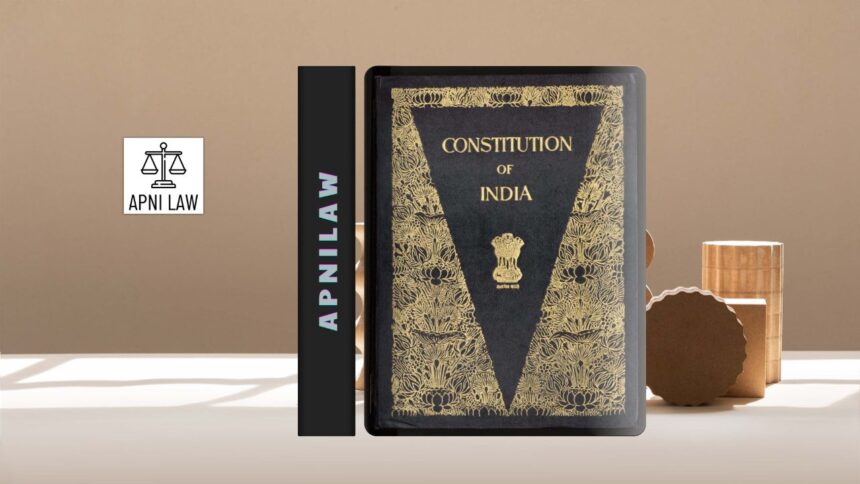Introduction
The Indian Constitution protects citizens from unfair treatment, even when they are accused of crimes. Article 20 plays a key role in this protection. It gives three important safeguards, no punishment under retroactive laws, no double punishment for the same offense, and no forced self-incrimination. These rules make sure that justice remains fair and balanced. By limiting the power of the state, Article 20 strengthens trust in the criminal justice system and protects individual dignity.
Ex Post Facto Laws
Article 20 prevents punishment under retroactive or ex post facto laws. A retroactive law makes an act a crime even though it was legal when committed. It may also increase penalties for an existing crime. Article 20 blocks such laws from harming the accused. For example, if Parliament passes a law today with harsher punishment for theft, it cannot apply to thefts committed before the law existed. This safeguard ensures fairness and prevents misuse of law by targeting individuals after the fact.
Protection Against Double Jeopardy
The second safeguard under Article 20 is protection against double jeopardy. It means no person can be prosecuted and punished twice for the same offense. Once a person is acquitted or convicted, the state cannot drag them into another trial for the same act. This principle gives finality to criminal proceedings and protects people from harassment. However, it applies only when the earlier trial ended with conviction or acquittal. If the trial was dismissed because of errors, the accused can still face a fresh trial.
Protection Against Self-Incrimination
Article 20 also protects against self-incrimination. It ensures that the state cannot force an accused person to testify against themselves. Confessions and statements must be voluntary. This keeps trials fair and stops investigators from using threats or pressure. At the same time, this protection does not apply to physical evidence. The state can ask for fingerprints, handwriting samples, or DNA tests, since they are not considered testimonies.
Judicial Interpretation and Case Law
Indian courts have explained and expanded Article 20 through landmark cases. In Keshavan Madhava Menon v. State of Bombay (1951), the Supreme Court ruled that retroactive laws do not apply to crimes but can apply to civil matters. In Maqbool Hussain v. State of Bombay (1953), the Court said that proceedings before customs officers do not count as prosecution for double jeopardy. In Nandini Satpathy v. P.L. Dani (1978), the Court made it clear that even during police questioning, no one can be forced to answer questions that might expose them to criminal charges. These cases show how Article 20 protects fairness in every stage of the justice system.
Significance of Article 20
Article 20 is vital because it prevents misuse of criminal law. It ensures that no one suffers punishment under unfair retroactive laws. It shields citizens from repeated trials and protects them from being forced to confess. These safeguards give dignity to the accused while keeping the justice system balanced. By protecting individuals from excessive state power, Article 20 makes sure that punishment happens according to law, not out of revenge or political pressure.
FAQ Section
1. What does Article 20 protect?
Article 20 protects against retroactive criminal laws, double punishment for the same offense, and forced self-incrimination.
2. Does Article 20 apply to civil matters?
No, Article 20 applies only to criminal cases. Civil penalties like fines or taxes do not fall under its protection.
3. Can the police demand DNA or fingerprints under Article 20?
Yes, the police can collect fingerprints, handwriting, or DNA. Article 20 protects only against being forced to speak or confess against oneself.
Conclusion
Article 20 of the Indian Constitution is a shield for citizens in the criminal justice system. It blocks unfair retroactive laws, prevents double punishment, and protects against forced confessions. By setting these limits, the Constitution ensures justice is not only about punishing the guilty but also about protecting the innocent. These safeguards remind us that the strength of a democracy lies in fairness, where even the accused are treated with dignity. Article 20 continues to guide India’s legal system by balancing state authority with individual rights.
For any specific query call at +91 – 8569843472








